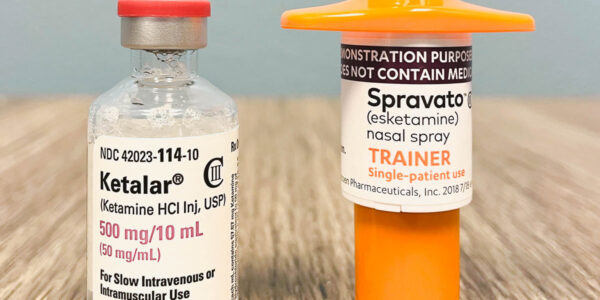LISTEN TO THIS ARTICLE:
Newly elected Senator John Fetterman recently checked into a hospital for depression treatment. We don’t know for sure yet, but there is a good chance this is related to the stroke he had during his campaign. Depression is a common occurrence in stroke survivors. Many estimates indicate that up to 1 in 3 survivors will experience depression in the first year after. This is not surprising, as a stroke can be a traumatic and life-changing event, with physical and cognitive impairments that can lead to feelings of helplessness and loss of independence.
1 in 3 stroke survivors will experience depression in the first year after.
Depression can be caused by both biological and psychological factors, and stroke survivors are particularly susceptible to both. Stroke survivors are at risk of developing depression due to the changes in their brain chemistry that occur after a stroke. These changes can disrupt the balance of neurotransmitters that regulate mood, leading to depression.
In addition to biological factors, psychological factors can also contribute to depression in stroke survivors. The sudden onset of a stroke can cause significant changes in a person’s life, including physical disabilities, changes in relationships, and loss of independence. These changes can cause stress, anxiety, feelings of hopelessness and despair, and suicidality. Senator Fetterman has struggled with auditory processing (understanding what has been said) since his stroke. That, coupled with the stress of being a newly minted U.S. senator is enough to tax anyone’s mental health.

Depression makes a hard situation harder
Depression in stroke survivors can have serious consequences, both for the individual and for their family and caregivers. Mood disorders can affect a person’s ability to participate in rehabilitation. They can also make it more difficult to recover from the physical and cognitive impairments caused by the stroke. It can also have a negative impact on social relationships, leading to social isolation and loneliness.
Fortunately, there are effective treatments available for these people. These can include medications, such as antidepressants, as well as psychotherapy and support groups. It is important for stroke survivors to receive timely and appropriate treatment for depression. This can help to improve their quality of life and support their recovery from the stroke.
As Senator Fetterman’s experience shows, depression is a common occurrence in stroke survivors, but it is treatable. Stroke survivors and their caregivers need to be aware of the risk of depression and to get treatment if symptoms arise.


 Learn
Learn Read Stories
Read Stories Get News
Get News Find Help
Find Help
 Share
Share
 Share
Share
 Share
Share
 Share
Share



